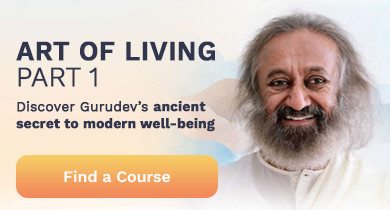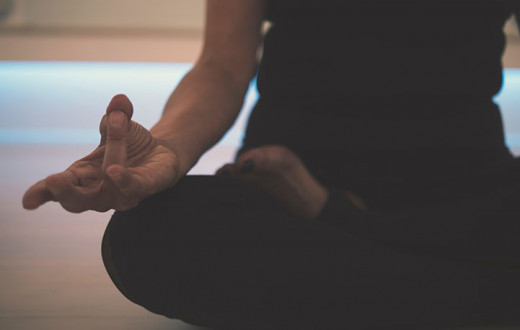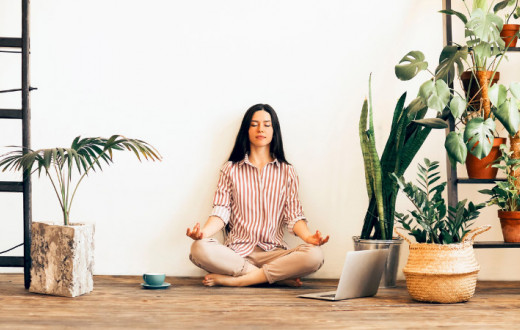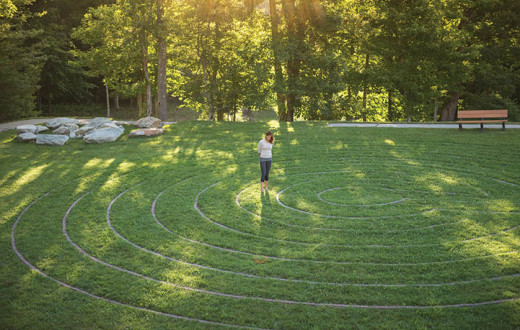By Denise Everheart
New to meditation? Get your FAQs answered, enjoy a relaxing meditation for beginners, and experts alike. Plus learn about breath and meditation.
Congratulations! Give yourself a big pat on the back! You have decided to try meditation as an aid for relaxation and you are in the right place to deal with your stress, anxiety, and sleep issues. Meditation can definitely help you relax deeply, deeper than the deepest sleep. And there is plenty of research to support the science behind the benefits of meditation practice, especially one that incorporates breathing.
First, let’s jump into some of the frequently asked questions related to our topic- meditation for beginners, and how your breath can be used as an easy tool for meditation.
FAQs
Q: Can you teach yourself to meditate?
A: Anyone who has tried to read a book and teach themselves to meditate will eventually seek out a teacher. This is one area of life that requires the guidance of an expert. Learning to meditate from a trained meditation instructor gives you a proven meditation technique and ensures your success.
Q: How long does it take for meditation to work?
A: A meditation practice should start yielding results from the first few sessions. But for maximum benefits, you will need to stay with a regular meditation practice for at least 40 days. Then you can evaluate your method to see if you want to continue or try something new. Meditation practice is similar to physical exercise, if you don’t do it or only do it from time to time- your results will mirror your commitment.
Q: How long should I meditate if I’m a beginner?
A: A good rule of thumb is 10 to 20 minutes. Shorter meditations aren’t really meditation; they are better categorized as mindfulness breaks and can be used for momentary relaxation. For maximum results meditate for at least 10 minutes. But even more important than the time spent in meditation is sticking to a daily meditation practice.
Q: When is the best time to meditate?
A: First thing in the morning, after showering, and before eating, is the best time to meditate. A morning meditation starts you off on the right foot and makes it easier to create a meditation habit. It is also ok to meditate mid-day and late afternoon providing you do not have a full stomach. If your stomach is busy digesting food, you are more likely to either fall asleep while meditating or have indigestion.
Q: Is it ok to fall asleep in meditation?
A: Though falling asleep during meditation is ok, it isn't the goal of meditation and only indicates a sleep debt. Sometimes though we think we fall asleep during meditation and we are actually experiencing a deep state of meditation. The sure-fire way to be sure is whether or not you were snoring. Snoring is obviously connected to the sleep state!
Q: Is it ok to think during meditation?
A: You have no choice in the matter! Thoughts will come. If you resist thoughts, they will persist-even more thoughts will come! Without encouraging them or resisting them, just be at ease with them. Our mind is like the sky and thoughts are like clouds. Just as clouds come and disappear on their own, so do our thoughts.
Q: What should you not do during meditation?
A: You should not force meditation. Meditation is meant to be effortless. If you are straining, it is no meditation. Some meditations may feel deep and others may feel shallow and even antsy, it is best not to analyze your experience. If you stick with the practice you see that there is an inward stroke and an outward stroke, both are part of the meditation journey.
Q: Can you listen to music during meditation?
A: Sometimes listening to music for meditation leads to more thoughts. But using a guided meditation that has some ambient music can help you have a more effortless meditative experience.
Q: Can you meditate with your eyes open?
A: Meditation can more easily happen when the eyes are closed. It is important to withdraw the senses if we want to go inward. If you find yourself struggling to keep your eyes closed you can try 3 things.
Do a little yoga or other physical activity before meditation.
Wear an eye mask or bandana to help keep the eyes closed.
Start your meditation with eyes opened about 30%, with eyes gazing downward. Within a few minutes, your eyes will naturally close.
Q: What should you do if your mind starts wandering?
A: Some random wandering is natural, let it be. In fact, it is a sign of stress release. As you become aware that your mind is wandering, it will stop on its own. But if your mind gets on to planning or analyzing every time you sit for meditation, it may be good to either do a guided meditation or learn a specific technique from a certified teacher.
Q: What happens when you meditate every day?
A: Meditating every day builds a foundation of benefits that increase over time. Meditating now and again can cause you to slip backward and lose the benefits you have gained. Daily meditation practice is similar to dyeing a cloth. For maximum fade resistance, you need to dye the cloth on a regular basis.
Q: How is my breath connected to meditation?
A: The breath is possibly the biggest and most unknown tool for meditation. If you look at the times when you have been frustrated or angry, how do you breathe? And when you are sad? How about when you are happy and calm, how do you breathe? The breath is inherently different depending on the emotion you are experiencing and your breath can also influence the way you feel. So starting your meditation with some gentle, easy, longer breaths can be a good way to relax, center, and quiet the mind. Breathwork can aid in releasing negative emotions as well as increase well-being and inner peace.
Benefits of meditation
You have probably heard about many of the benefits of meditation from friends and family, articles and blog posts, maybe even a television show. Less stress and anxiety, more calm, and better focus are just a few of the mind and body benefits any beginner can start to enjoy with meditating for just 10 to 20 minutes a day, every day.
Other benefits include better sleep, less depression, improved blood pressure, even a stronger immune system! Meditation is quite possibly the very best investment in your mental health and physical well-being. How do you put a price tag on being your best self? You can’t. But you can make yourself a priority for a few minutes every day.
Basic instructions on how to meditate for beginners
Meditating on your own can be a challenge, but with some meditation tips, you can start your meditation journey. Here are the basic steps:
Find or create a private, quiet space with a meditation cushion or a comfortable chair.
Decide whether to use a guided meditation, guided breathwork, or on your own.
Determine the amount of time for your meditation session, 10-20 minutes is good.
Use a meditation timer with a pleasant bell sound. The Sattva app has a good timer.
Sit with spine erect, shoulders relaxed and eyes closed.
Drop any desire for a particular experience.
Bring your attention inwards.
Take some deep breaths in and out and start relaxing and letting go.
Let the thoughts pass by on their own.
Gently keep your attention on your breath throughout the duration.
You can also try this easy guided meditation for Deep Relaxation led by Art of Living founder, Gurudev Sri Sri Ravi Shakar.
Meditation techniques
Aside from guided meditations, there are two other main types of meditation- those that use a mantra (internal sound) or those that use the breath, like SKY Breath Meditation. Both meditation techniques are easy to practice for beginners. The beauty of using meditation techniques is that you do not have to struggle with thoughts and feelings like you might if meditating on your own. Having a form of meditation that gives you a means of handling your thoughts and emotions sets you up for more success from the beginning.
Helpful tips for beginners
Still want to try meditating on your own before you consider meditation training? Try these helpful tips:
Choose a time that works most days to help create the habit of meditation.
Try doing a little subtle yoga (simple stretches) before your meditation time.
Try a body scan meditation, a guided meditation for deep relaxation.
Use a meditation app, like The Art of Living Journey app.
Keep a meditation journal to track the improvements to your physical and mental health.
Learn SKY Breath Meditation.
Attend a free, live meditation session, Beyond Breath, to learn more about breath and meditation, and how you can learn SKY Breath Meditation.
Start today and stick with a regular meditation practice for 8 weeks, then evaluate your progress.
One more important thing to consider before you begin
As you explore this new dimension of meditation and how it can help you, why not go for the creme de la creme!?! In 100+ studies SKY Breath Meditation has shown:
56% reduction in stress hormones
Significant decrease in anxiety, depression, and PTSD
Enhanced deep sleep
33% increase in immune cell count
Enhanced optimism and life satisfaction
Improved respiratory function
Greater mental focus
Healthier blood pressure
Reduced addictive behaviors
Mindfulness increases naturally
Increased self-esteem and joy
Your breath is the ‘secret sauce’ for meditation and it is yours for the taking! Learn SKY Breath Meditation and truly enjoy your relaxing meditation journey! Click below to attend a free introduction to SKY.
Meditation for beginners has never been so easy! Enjoy!
Denise Everheart is a freelance writer, breath meditation coach, and recipe designer. Follow her @everheartstudio4meditation and @celeplateyourlife on Instagram.





























